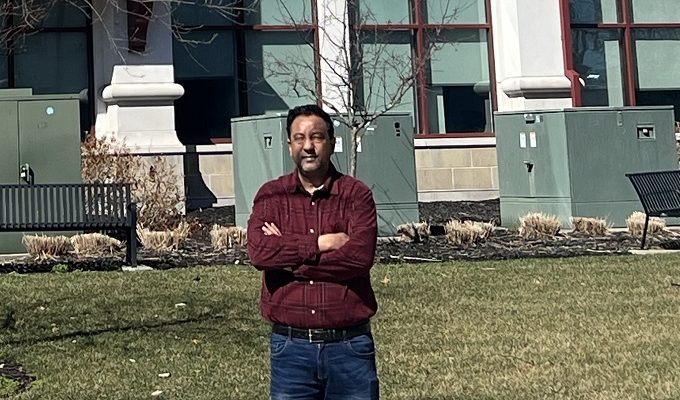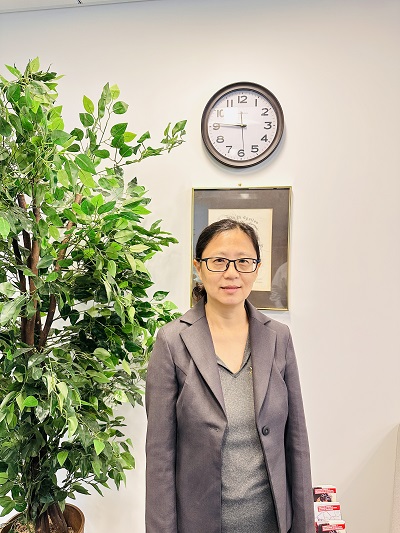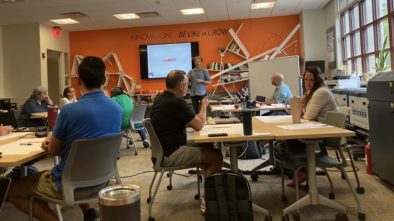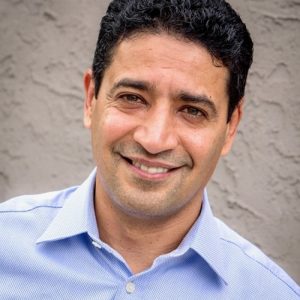Montclair State’s School of Computing is Being Transformed to Better Serve its Diverse Community
Big changes are happening at Montclair State University’s School of Computing. Under the leadership of Liaquat Hossain, director, the school is being transformed to enhance diversity and increase retention in computing education.
Along the way, the school has integrated computing programs that had resided at other schools. These programs focus on various disciplines within the computing field, including computer science, technology, software engineering, cybersecurity, data science and applied mathematics.
NJTechWeekly.com spoke to Hossain and Michelle Zhu, a professor at the School of Computing, about the changes and what Montclair hopes to accomplish.
“We’re doing something very exciting, maybe the most innovative in the country or in the world,” Hossain said. The school is aggressively addressing the issue of STEM student and faculty retention. “There are a lot of retention problems in STEM disciplines, as you know, and particularly if we think about women and minorities, and first-generation students. These challenges persist globally.”
He noted that Montclair’s mission is to serve students who are coming to them from “not such an elite background.” The purpose of our school is to offer transformative education, research and community-engaged projects to develop students and faculty. We are doing research that serves New Jersey, and the world, in terms of the workforce.
He added that the curriculum needs to be revised in light of that mission. “One of the areas that we are focusing on next year is completely rethinking our curriculum in stats, in mathematics and programming to connect [them]. But one of the advantages that we have now is that they are all part of one school.”
Michelle Zhu, professor of computing | Courtesy Michelle Zhu
Zhu discussed how the departments used to be under different schools, and how that affected the students. “We recognize,” she said, that “computing is a hard major, and there are some mathematical, statistics and programming requirements that are necessary for students to succeed.”
Montclair doesn’t want to give up on any student, she added, so the school is looking at computer-science education papers about pedagogical strategies that have been applied successfully at other universities, to help students stay in the program.
“We are focusing on freshmen and sophomore students who are struggling with fundamental programming, calculus and statistics courses. We did add a recitation session about one year ago. We require students to have an extra recitation, which is one hour, that will reinforce the lecture that they have been taught, and also do some additional exercises with guidance from instructor specialists,” Zhu said.
She added that more has to be done, as some of the courses at Montclair have a high DW (Drop or Withdrawal) rate and some, like calculus or discrete math, have a very high DFW (Drop, Fail or Withdrawal) rate. The school is figuring out how to keep students in these courses.
According to Hossain, Montclair’s new school is also nurturing young faculty and graduate students. “We have 36 members of the faculty now, and 95 percent of them have Ph.D.s from top-notch places.” And the school is going to offer new programs in cyber security and software engineering, as well as AI. Hossain said that Montclair is trying to build a culture of inclusion. “I’ve been working on setting up an advisory council, which is very important to hear experts’ opinions and to engage them in our thought processes.”
The school also wants to bring the outside community to its campus. “We want to host town halls to talk about critical issues with regard to technology, social media and harm, mental health. We believe technology has a lot of good things; but, also, we need to put some guardrails and questions on that.”
Hossain added that, next year, students and faculty members will be involved in capstone projects centered on systems development and prototyping for community solutions. An example of a community solution could be the building of digital resources for schools that don’t have enough resources.
Like most computing schools, Montclair is male-dominated, but neither Hossain nor Zhu wants it to remain that way. “Our approach is a community-engaged, systems-prototyping, solution-based approach,” said Hossain. “We should be able to talk about this in a public forum where we could attract younger girls of all colors, all religions and all social backgrounds; and we want to build that. We have a target of 40 percent female students” in the coming years.
Montclair has some programs to attract and retain women, especially minority women, Hossain said. Zhu noted that the school has two women-oriented undergraduate clubs, one focused on cybersecurity and the other on technology and innovation. The female faculty members are setting up a club for the women studying in the graduate program. Moreover, the school wants to interact with the high schools in Montclair by offering them courses in computing for social problem solving.
Zhu said that Montclair’s School of Computing is also trying to hire more female faculty. “We’ve been hiring almost every year. We are figuring out how to help the female faculty members to grow their careers. We know we do have female faculty that have a family. The school recognizes that it’s natural for them to have such a responsibility. And we are trying our best to help them, to provide opportunities and give their course loads some adjustment, so they will be able to still do the research and take care of their families.”





